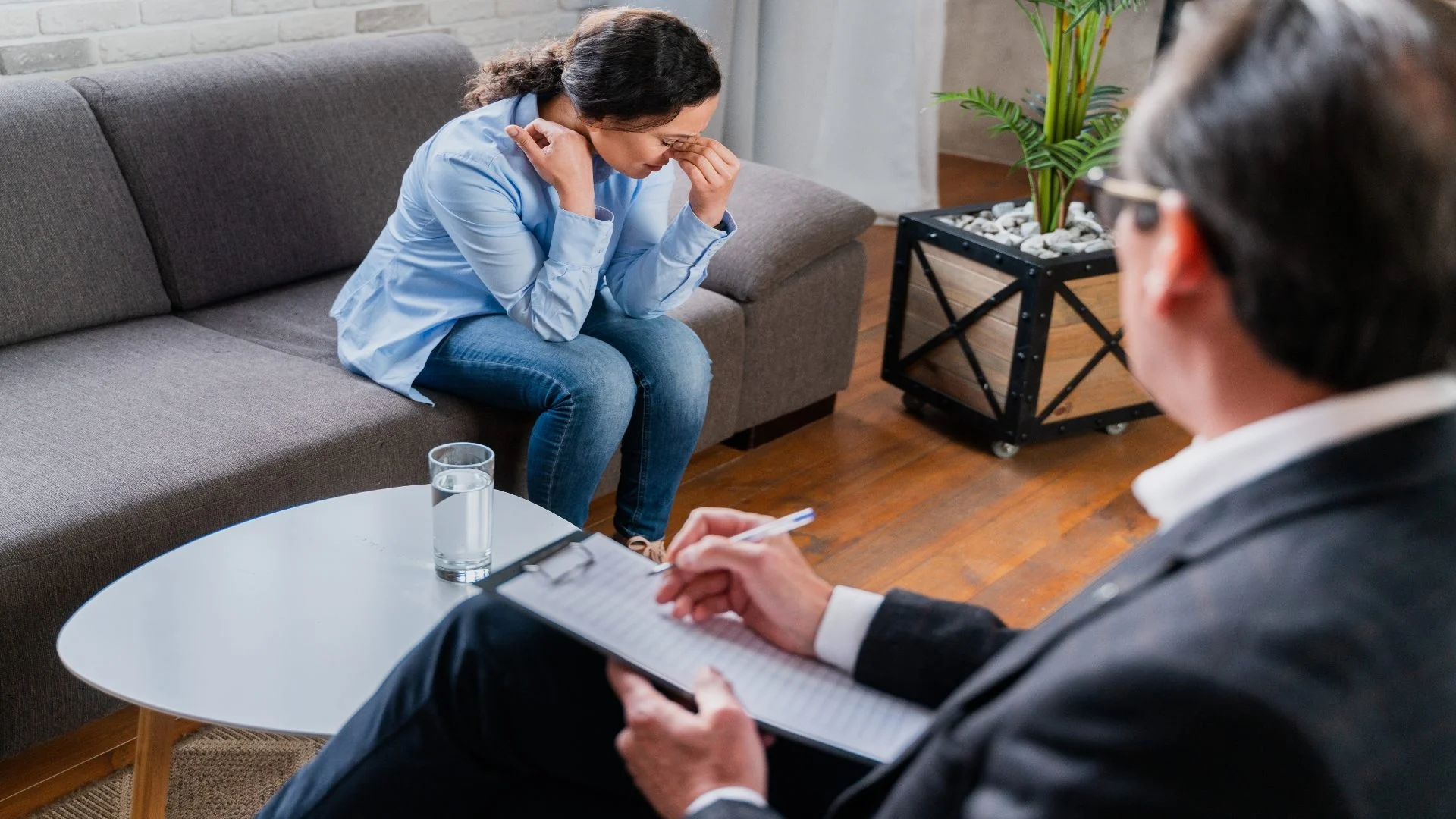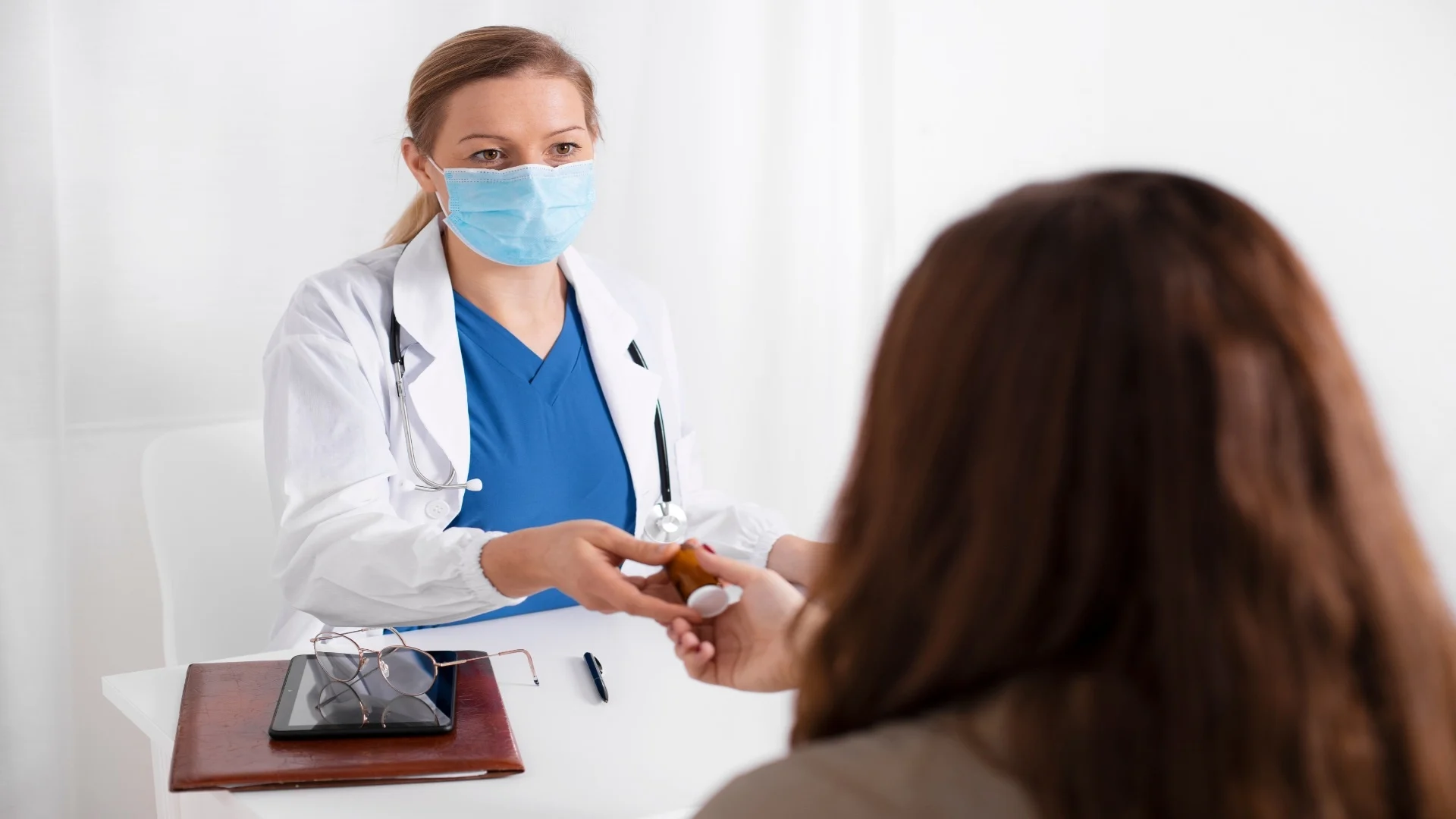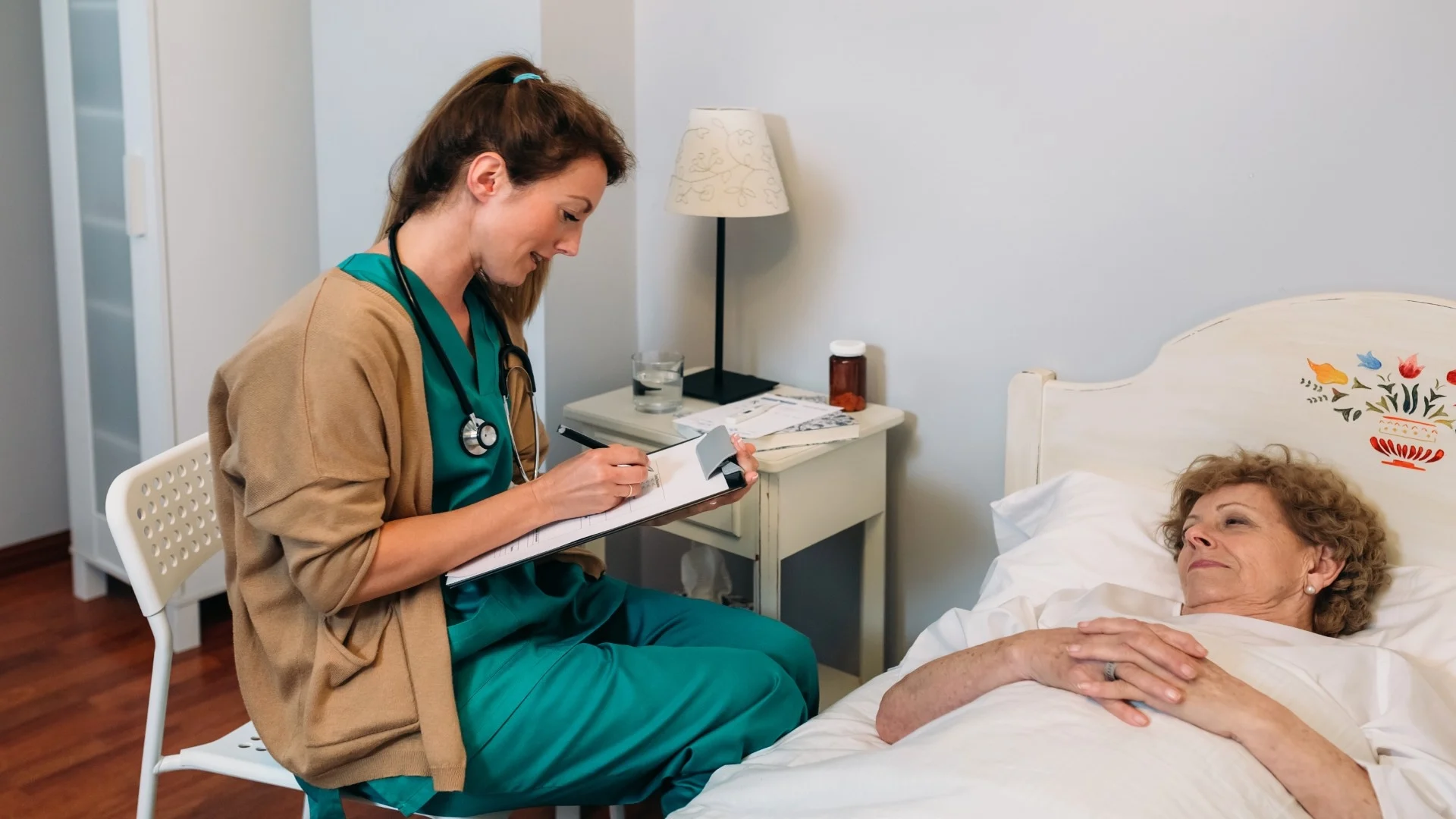Drug and Alcohol
I Relapsed—Now What? How to Move Forward After a Setback in Recovery

: I relapsed—now what? A relapse isn’t the end of your recovery. Learn how to rebuild, regain control, and take positive steps forward after a setback.
You relapsed?. It’s a painful truth to face—and right now, you may be overwhelmed by guilt, shame, or fear that everything you’ve worked for is lost. The pain of a setback can feel like a personal failure, leaving you unsure of what to do next.
But relapse doesn’t mean your recovery is over—it’s a signal that something needs attention and care. At The Edge Treatment Center, we help people just like you turn setbacks into powerful turning points. This article will guide you on how to move forward with purpose, rebuild your strength, and recommit to a lasting recovery.
Why Relapse Happens

If you relapse, it’s essential to know this doesn’t mean your recovery is over. Relapse is a standard part of the healing journey from addiction. It doesn’t erase the progress you’ve made—it simply shows that something in your recovery plan needs adjustment.
Addiction Is a Chronic Condition
Addiction is a disease that affects how the brain handles stress, reward, and impulse control. Just like other chronic illnesses, relapse can occur even after a period of improvement. It doesn’t happen because you’re weak—it occurs because addiction rewires how you cope and respond to challenges.
Common Triggers That Lead to Relapse
Emotional, mental, or environmental stressors can trigger relapse. These include:
Stress and burnout
Unresolved trauma
Poor or toxic support systems
Feelings of loneliness or isolation
Untreated mental health issues, such as anxiety or depression
Even moments of overconfidence—feeling “cured” and letting go of supportive routines—can lead to vulnerability.
Knowing Why Is the First Step to Moving Forward
Understanding the reason behind your relapse helps you rebuild your recovery plan in a stronger, more informed way. At The Edge Treatment Center, we work with you to explore what led to the setback, without judgment. That clarity empowers you to make changes that support long-term healing and well-being. Relapse isn’t the end—it’s a signal that growth and deeper recovery are possible.
What to Do Immediately After a Relapse
Relapsing can trigger a wave of emotions—shame, panic, guilt, or fear. But the most important thing you can do right now is stay calm. You’re not alone, and this moment doesn’t define you. Relapse is a signal, not a sentence; what you do after relapse matters more than the slip itself.
Reach Out for Help
Don’t isolate yourself. Talk to someone you trust—a therapist, a sponsor, a recovery coach, or call us at The Edge Treatment Center. You don’t have to process this alone, and support is available right now. Opening up may feel difficult, but it’s one of the most courageous things you can do after a setback.
Prioritize Your Safety
If your relapse involved substances like opioids or alcohol, your physical safety comes first. Relapsing after a period of sobriety can put you at higher risk for overdose due to reduced tolerance. If you’re in any danger or unsure of your health, seek immediate medical help or call emergency services.
Reflect Without Judgment
Once you’re safe and supported, take time to reflect. What happened before the relapse? Were there emotional stressors? Did something trigger old thought patterns or behaviors? Think about whether this was an emotional, mental, or physical relapse—or all three. Writing in a journal or talking it through with someone can help you connect the dots.
Use This Moment for Growth
At The Edge Treatment Center, we help people see relapse as a learning experience, not a failure. It’s an opportunity to refine your recovery plan, enhance your coping strategies, and reaffirm your commitment to recovery. You’re still on the path to recovery, and we’re here to walk with you.

We’re Here To Help You Find Your Way
Would you like more information about mental health or drug addiction? Reach out today.
Adjust Your Recovery Plan

Relapse can be a turning point—a moment that reveals what’s missing or no longer working in your current recovery plan. Instead of seeing it as a failure, consider it an opportunity to reassess your needs and refine your path forward. Recovery isn’t one-size-fits-all, and sometimes progress means making changes.
Reevaluate Your Level of Care
After a relapse, it’s worth asking: Is my current level of treatment still meeting my needs? If you’ve been in outpatient therapy, you might benefit from stepping into a more structured environment, like an intensive outpatient program (IOP) or residential care. You don’t need to figure this out alone—we’re here to guide you.
Explore Therapy Options
Different situations call for various types of support. Individual therapy can help you address the underlying emotional patterns tied to your relapse.
Group therapy offers shared experience and accountability, while family therapy can help repair strained relationships and build a stronger home environment.
Medication-assisted treatment (MAT) might also be helpful, especially if cravings and withdrawal symptoms feel overwhelming.
Treat Co-Occurring Mental Health Conditions
Many people struggling with addiction also live with anxiety, depression, trauma, or other mental health issues. If these aren’t being addressed, staying sober becomes even more difficult.
A comprehensive treatment plan should care for your mind as much as it does for your body. At The Edge Treatment Center, we specialize in treating clients with dual diagnoses because full recovery means healing every part of you.
We Adjust With You
Your past matters, but so does your present. That’s why we’ll help you create a personalized recovery plan tailored to your current situation. Your needs may have changed, and that’s okay.
Strength Means Flexibility
Adjusting your plan isn’t a weakness—it’s a strength. It demonstrates your commitment to your recovery, even after a setback. At The Edge, we’ll walk beside you with compassion and clarity as you take your next step forward.
Strengthen Long-Term Support
After a relapse, building a strong support system is key to protecting your progress and preventing future setbacks. Long-term recovery isn’t just about avoiding substances—it’s about creating a daily life that supports your mental, emotional, and physical well-being.
Create a Relapse Prevention Plan
One of the most powerful tools in recovery is a personalized relapse prevention plan. This involves identifying your warning signs—like changes in mood, isolating behavior, or cravings—and creating a plan of action for when those signs appear. Recognizing the early stages of relapse gives you time to respond with healthy choices before things escalate.
Rebuild Your Daily Routine
Stability starts with the basics. Focus on daily habits that reinforce sobriety, such as getting enough sleep, eating nutritious meals, exercising regularly, and practicing coping skills like mindfulness or journaling. These small steps help regulate your body and mind, making you more resilient to stress and triggers.
Reconnect With Your Support Network
Don’t go it alone. Surround yourself with people who understand your journey. Reengage with 12-step programs, group therapy, recovery coaching, or sober living communities. These relationships provide accountability, encouragement, and a sense of belonging—all of which are essential in long-term recovery.
Involve Your Loved Ones
Support from family and close friends can make a big difference, especially when they understand what relapse means and how they can help. Consider involving them in family therapy or educational programs to support their development. At The Edge Treatment Center, we work with families to help them support your recovery without judgment or pressure.
Recovery is not just about stopping the substance—it’s about rebuilding your life with purpose and support. And with the right tools and people around you, you can move forward stronger than ever.

We’ll Lead You to New Heights
Do you have more questions about mental health or drug addiction? Reach out.
How The Edge Treatment Center Can Help
At The Edge Treatment Center, we understand that recovery isn’t linear, and a relapse doesn’t mean you’ve failed. It simply means your recovery plan needs to shift. That’s why we offer personalized treatment plans designed to grow with you, adapting to your current needs, not just your past experiences.
Compassion Over Judgment
Relapse can be painful, but it’s not something to face with shame. Our team approaches every setback with compassion and clinical insight. We’ll help you explore what led to the relapse, identify what’s missing in your support, and create a path forward, without blame or guilt.
Whole-Person Care
Recovery takes more than willpower. We combine mental health support, evidence-based therapy, and medication-assisted treatment (when necessary) with practical tools, including stress management, coping strategies, and family involvement. Your emotional and psychological well-being are just as crucial as your sobriety.
Support That Stays With You
We don’t just treat relapse—we help you move forward stronger. From the moment you reach out, we’ll walk with you through every stage of recovery, from urgent care needs to long-term healing.
Relapsed and Feeling Lost? We’re Here to Help You Find Your Way Back

Relapse can feel like a step backward, but it’s an opportunity to rebuild with greater strength, insight, and support. What matters now is how you respond—and you don’t have to do it alone. At The Edge Treatment Center, we specialize in helping individuals recover from setbacks with compassion, personalized care, and expert guidance.
Whether you need to adjust your plan, reconnect with support, or start fresh, we’re ready to help you move forward. Your recovery journey is still yours—and it’s far from over. Reach out today.
What Does Relapse Mean in Recovery?
Relapse means returning to drug or alcohol use after a period of sobriety. It can be a brief slip or a more extended return, but it doesn't erase your previous progress. It's a signal that your recovery plan needs attention.
How Common Is Relapse in Addiction Recovery?
Relapse is prevalent and affects 40–60% of people in recovery. Addiction, like other chronic illnesses, often includes setbacks. Experiencing a relapse doesn’t mean treatment has failed—it means further support, adjustment, or recommitment may be needed to continue healing.
Is a Relapse the End of Recovery?
No, relapse is not the end of recovery. It's a setback, not a failure. Many people relapse and still go on to achieve lasting sobriety. What matters most is getting support, learning from it, and making positive changes to move forward.
What Should I Do Immediately After I Relapse?
First, ensure your safety, especially if there's a risk of overdose. Then reach out to someone you trust—a sponsor, therapist, or treatment provider. Don’t isolate. Start reflecting on what happened and take the next step in your recovery with renewed support.
Can I Still Get Sober After a Relapse?
Yes, you absolutely can. Many people return to sobriety and thrive after relapse. With the proper treatment, support system, and commitment to recovery, you can rebuild your plan and continue your journey toward a healthier, addiction-free life.

We’re Here To Help You Find Your Way
If you or a loved one is struggling with addiction, there is hope. Our team can guide you on your journey to recovery. Call us today.
Written by
The Edge Treatment Center
Reviewed by
 Jeremy Arzt
Jeremy ArztChief Clinical Officer
Drug and Alcohol
September 29, 2025
